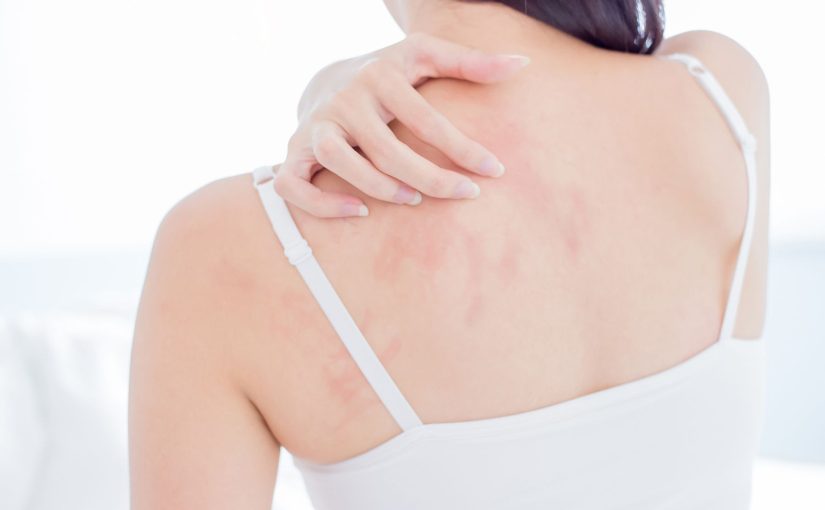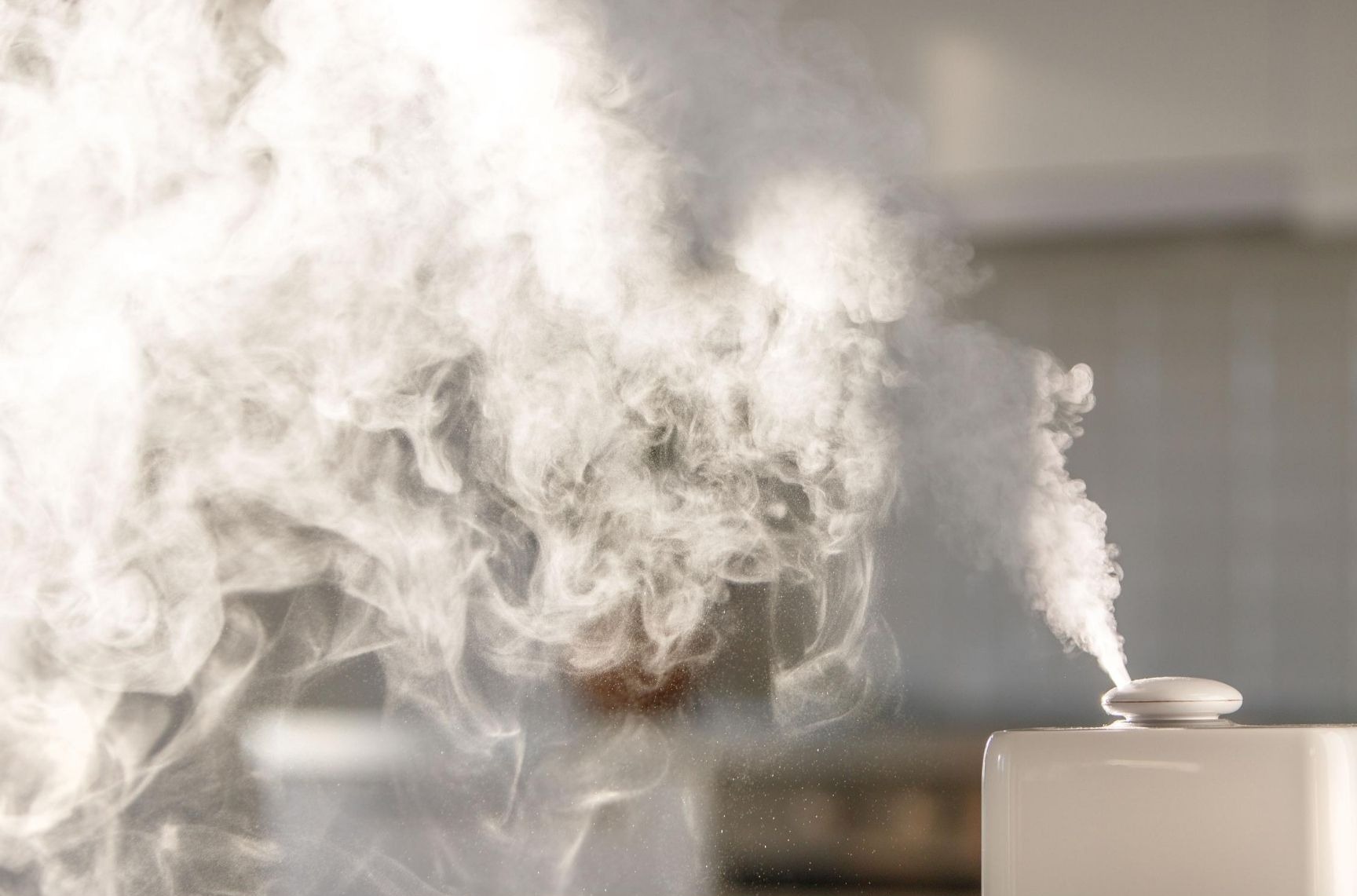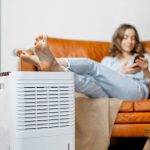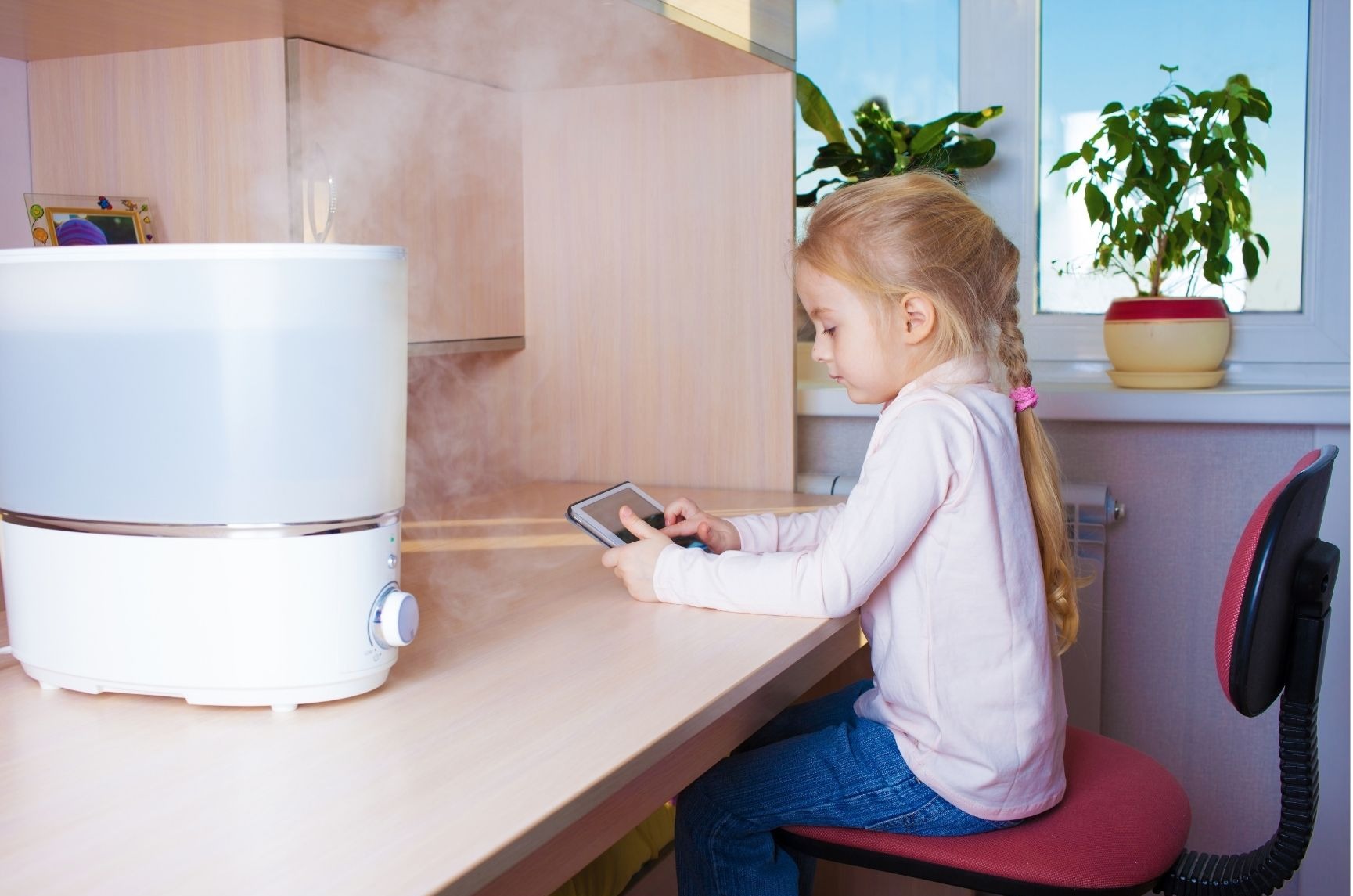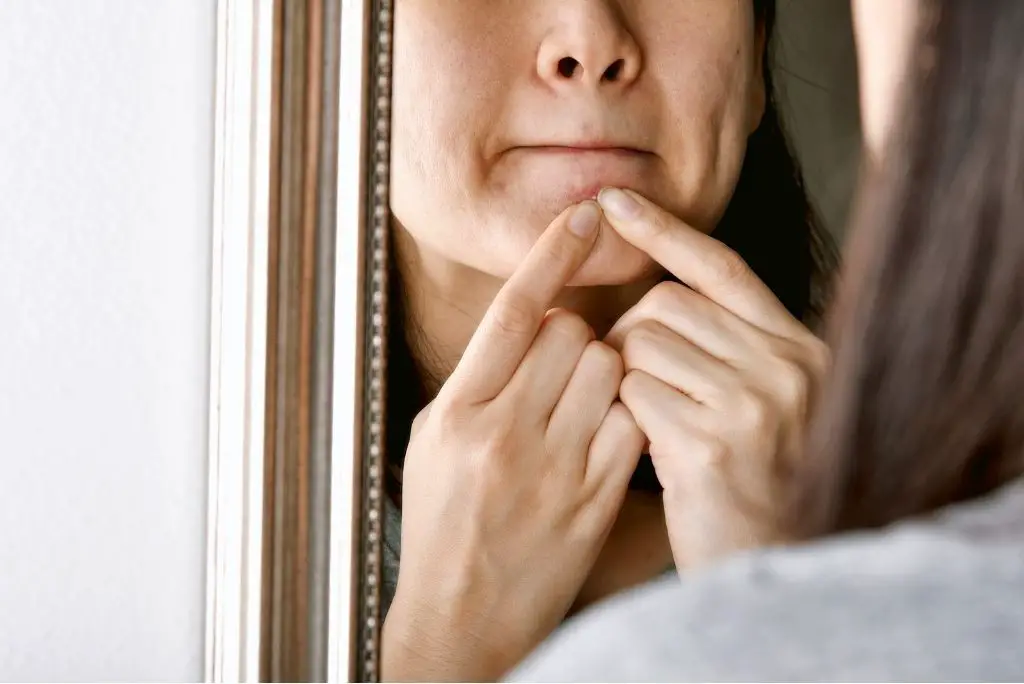Table of Contents
Can a Humidifier Help With Eczema?
Yes, using a humidifier can help relieve eczema symptoms by adding moisture back into dry air. Dry air exacerbates eczema by causing transepidermal water loss, which strips the skin of moisture and damages the skin barrier. Humidifiers work by increasing humidity levels and preventing moisture loss from the skin.
Eczema is a common chronic skin condition characterized by dry, irritated, inflamed skin that often appears red and feels very itchy. Eczema can occur anywhere on the body but most often affects the hands, feet, ankles, wrists, neck, upper chest, eyelids and insides of the elbows and knees.
While eczema affects people of all ages, it occurs most frequently in infants and children. About 10-20% of infants and children have symptoms of this chronic inflammatory condition. For many, the condition improves over time and symptoms may disappear completely by adulthood. However some people continue to experience eczema flares throughout their life.
What Causes Eczema?
Eczema arises due to a combination of genetic and environmental factors. People with certain genetic mutations have an overactive immune system response in the skin. The immune system releases inflammatory chemicals, triggering inflammation when the skin comes into contact with various irritants or allergens.
While genetics play a central role, environmental triggers also impact the onset and severity of eczema. These include:
- Dry skin
- Irritants like household cleaners, soaps, shampoos and detergents
- Allergens from pollen, pet dander, dust mites
- Microbes like staph bacteria or viral infections
- Stress and fluctuations in hormones
- Cold, dry weather
- Course fabrics like wool against the skin
Of all these environmental factors, dry skin is arguably the most significant. Keeping the skin properly hydrated and moisturized is key to preventing and managing eczema flares.
How Humidity Impacts Eczema
Dry air actively draws moisture away from the skin through a process known as transepidermal water loss (TEWL).
With eczema, the skin barrier is already compromised so moisture escapes even faster when humidity is low. This leads to more cracks, fissures and dry, itchy, damaged skin that characterizes eczema breakouts.
Dryness also interferes with the skin’s microbiome and impairs the body’s ability to repair skin lesions. The resulting itch-scratch cycle further deteriorates the skin barrier and worsens inflammation.
Cold weather in the winter also dries out both indoor and outdoor air. Forced air heating systems only add to the problem. Some people notice their eczema worsens during winter months as humidity plummets.
Since keeping skin hydrated is key for eczema management, maintaining sufficient humidity levels is recommended. According to the National Eczema Association, 40-60% humidity is ideal for preventing eczema flares.
How Can Humidifiers Help Eczema?
Humidifiers introduce cool, water-based mist into dry indoor environments to boost humidity levels. This keeps moisture in the air instead of allowing it to escape from your skin.
By preventing moisture loss, humidifiers help:
- Improve skin hydration and reduce dryness
- Maintain adequate skin suppleness and elasticity
- Reduce itching and inflammation
- Promote better skin repair and healing
- Prevent cracks and fissures in skin
- Restore normal skin pH and microbiome
- Prevent flare ups of symptoms
Studies demonstrate eczema severity improves when indoor humidity is increased through proper humidification.
One study found eczema patients who used humidifiers for 8 weeks experienced reduced itching, along with improvements in skin dryness, redness, peeling, edema and lichenification. Patients also reported better quality of sleep thanks to itch relief.
Another study investigated effects of nocturnal humidification on eczema symptoms in winter when bedroom humidity levels were below the recommended 30-50% range. Using ultrasonic humidifiers in bedrooms significantly decreased the severity of eczema symptoms after 4 weeks.
Overall, research indicates that boosting moisture in the air with humidifiers can minimize eczema flares and related discomforts. Humidification therapy enhances quality of life by promoting restful sleep versus restless scratching.
Along with frequent moisturizer use and medications during flare ups, maintaining humidity through a humidifier can be an integral component of eczema management programs.
Choosing a Humidifier for Eczema Relief
Several types of humidifiers are available for home use. Consider the following factors when selecting one to help relieve eczema:
- Type of humidifier: Ultrasonic and evaporative humidifiers are best suited for eczema relief as they effectively hydrate the air. Avoid steam vaporizers as these can cause burns.
- Size: Choose a model rated for the square footage of the room where you spend most of your time, like the bedroom or living room. Larger rooms may require multiple humidifiers.
- Humidity output: Look for sufficient moisture output measured in gallons per day to humidify the room to 40-60% relative humidity. Monitor with a hygrometer.
- Runtime: Run times of 24 hours or more allow humidification around the clock. This prevents humidity from dropping at night when heating systems are off.
- Features: Humidistats automatically regulate moisture output. Antimicrobial tanks reduce mold and bacteria buildup. Auto shut-off prevents over-humidifying.
- Maintenance: Daily cleaning is vital for sanitation and preventing mineral deposits which can spew into the air as dust.
- Noise level: Choose a quiet model that won’t disturb sleep. Ultrasonic and impeller types are quieter than evaporative humidifiers.
- Filters: Replace any filters as per manufacturer guidelines to maintain performance.
Tips for Using Humidifiers for Eczema
To maximize benefits from humidifier therapy:
- Place the humidifier near your bed or where you relax most. This ensures you reap the localized effects.
- Maintain humidity between 40-60%. Excessively high humidity encourages mold and dust mites which can worsen allergies.
- Clean and disinfect the tank and parts frequently to prevent microbes and minerals in standing water from becoming airborne.
- Use purified or distilled water to minimize mineral deposits. Tap water contains minerals that leave white dust when aerosolized.
- Run the humidifier daily starting before eczema flares begin. This helps prevent dryness that triggers itching and inflammation.
- Replace old humidifiers that develop leaks and are difficult to clean thoroughly. These can spew microbes and minerals into the air.
- Keep humidifiers out of reach of young children and pets to prevent accidents and injuries.
Overview of Eczema Subtypes
There are different classifications and types of eczema:
Atopic dermatitis: The most common form, atopic dermatitis occurs often in people and families with asthma, hay fever and other allergies. It can arise at any age but often starts in childhood.
Contact dermatitis: This type is caused by contact with irritants or allergens. It may occur as irritant contact dermatitis or allergic contact dermatitis. Common triggers include chemicals, cosmetics, metals, plants, and animals.
Dyshidrotic eczema: Dyshidrotic eczema causes small, fluid-filled blisters on the palms, fingers, toes and soles of the feet. It tends to occur in adults and can be triggered by stress, seasonal changes, and contact with irritants.
Nummular eczema: This causes coin-shaped patches of irritated, discolored skin, most often on the arms and legs. It’s more common in middle-aged and elderly adults.
Seborrhoeic dermatitis: This type affects oily areas like the scalp, face, folds of the nose and ears, causing redness, scaly patches and dandruff-like flaking.
Neurodermatitis: Thick leathery patches with severe itching occur around scratched or irritated skin. Common locations include the scalp, wrists, ankles and neck.
Signs and Symptoms of Eczema
Eczema arises when the skin barrier that locks in moisture and protects from external elements is disrupted. This allows moisture to escape while also allowing microbes, allergens and chemicals to penetrate the skin.
Classic eczema symptoms stemming from skin irritation and inflammation include:
- Dryness and scaling
- Red, inflamed skin
- Rash that may ooze and crust over when scratched
- Intense itchiness, especially at night
- Thickened, cracked skin
- Raw, sensitive skin from excessive scratching
These symptoms can come and go, flaring up for days to weeks, and then subsiding either partially or completely. Flare ups are often triggered by environmental factors like those mentioned previously.
While eczema poses no serious health concerns when mild, it can greatly impact quality of life. Severe cases accompanied by incessant itching can cause sleep deprivation, social stress and emotional distress. In addition, broken skin from excessive scratching raises infection risk.
Conventional Eczema Treatments
While no definitive cure exists for eczema, conventional treatments aim to relieve itching and inflammation during flare ups and prevent future ones. These include:
Topical corticosteroids: These topical anti-inflammatory creams and ointments reduce swelling, redness and itching. Low potency steroids are used for mild cases, progressing to more potent versions for moderate to severe outbreaks.
Oral medications: For severe eczema unresponsive to topical steroids, medications like prednisone may be prescribed to reduce swelling and itching. Other drugs like cyclosporine work by calming overactive immune responses.
Biologics: Newer injected medications target specific parts of the immune system pathway underlying eczema.
Antihistamines: Anti-itch antihistamines like Benadryl provide relief from itching, allowing eczema to heal.
Phototherapy: Exposure to UV light under medical supervision kills overactive immune cells in the skin and suppresses inflammation.
Wet wrap therapy: Soaking gauze wraps with water and an antibiotic lotion are applied over skin for a few hours to allow deep moisturization.
In addition to pharmaceutical interventions, keeping the skin well-hydrated is critical for eczema management. This prevents cracks and fissures where germs can enter and trigger infections, which further exacerbate eczema.
Lifestyle and Dietary Tips for Eczema
While humidifiers can help relieve and prevent eczema flares triggered by dryness, lifestyle measures also play a key role in eczema control and skin health:
Moisturize frequently – Apply hydrating, fragrance-free moisturizing creams and ointments throughout the day, especially after bathing when skin is damp. Occlusive products containing petroleum jelly, mineral oil or ceramides seal in moisture.
Avoid triggers – Steer clear of known irritants and allergens whenever possible. Use only gentle, fragrance-free skin care and laundry products labeled for sensitive skin. Wear gloves for wet work and when using cleaners.
Take lukewarm showers – Hot water strips the skin’s natural oils. Limit showers to 5-10 minutes and avoid harsh soaps. Gently pat skin dry to retain some moisture after bathing.
Wear moisture-wicking fabrics – Choose lightweight cottons and avoid irritating wool. Look for temperature regulating fabrics that don’t trap sweat against skin.
Use hypoallergenic bedding – Encase mattresses and pillows in dust mite covers. Wash sheets weekly in fragrance-free detergent.
Avoid scratching – Keep nails trimmed short and distract yourself when itchy to prevent damaging skin from scratching.
Manage stress – Stress exacerbates inflammation so practice relaxation techniques like meditation, yoga and deep breathing. Get emotional support if needed.
Eat a healthy diet – A whole foods diet with Omega-3 rich fatty fish, colorful fruits/veggies, fermented foods and bone broth supports skin health.
Supplement wisely – Talk to your doctor before supplements, but vitamins C, D, zinc and evening primrose oil may help.
Get active outdoors – Exercise relieves stress while sunlight exposure increases vitamin D to improve immune function.
Consider probiotics – Probiotic foods or supplements support healthy gut microbiome which influences immune responses.
Get enough sleep – Chronic sleep deprivation worsens inflammation. Aim for 7-9 hours per night.
When to See a Doctor for Eczema
Consult your dermatologist promptly if you experience:
- No improvement in eczema symptoms after trying a humidifier for 2-4 weeks
- Sudden worsening of eczema not relieved by topical creams
- Intensely inflamed skin
- Persistent oozing and crusting of skin lesions
- Signs of skin infection like yellow crusting, warmth or fever
- Eczema covering a large percentage of body surface area
- Severe, unrelenting itching that interferes with sleep and daily life
For moderate to severe eczema, prescription medicated creams, oral immunosuppressants or phototherapy may be warranted under medical guidance.
Overview of Medical Eczema Treatments
If over-the-counter moisturizers and intermittent topical steroids don’t control eczema flares, your doctor may recommend:
Topical immunomodulators – Topical calcineurin inhibitors like Elidel suppress immune reactions in skin. Used for sensitive areas like face, groin and armpits.
Oral immunosuppressants – Drugs like cyclosporine inhibit immune responses bodywide to reduce eczema severity.
Systemic biologics – Newer injected drugs like Dupixent specifically block immune signaling proteins that drive inflammation in eczema.
Phototherapy – Exposure to UV light under medical supervision helps resolve severe eczema by reducing immune system overactivity in skin lesions.
Oral steroids – Short courses of prednisone help control severe flares when topical steroids don’t work. Extended use has serious side effects.
Antibiotics – Used for secondary skin infections resulting from excessive scratching which can worsen eczema.
Antihistamines – Oral anti-itch drugs like hydroxyzine provide relief from itching and allow eczema to heal. May cause drowsiness.
Wet wraps – Gauze soaked in water and medication is wrapped over skin allowing deep hydration to weeping lesions. Provides barrier against scratching.
Bleach baths – For severe eczema, bathing briefly in diluted bleach water decreases bacteria on the skin and reduces inflammation.
Your dermatologist will determine the best medical treatment approaches based on your eczema severity, affected areas, sensitivity and response to therapy.
When Humidifiers May Not Help Eczema
While humidifiers can provide some eczema relief, they have limitations:
- May not be sufficient for severe, widespread disease affecting large skin areas
- Don’t address underlying immune dysfunction or provide anti-inflammatory, antimicrobial and antipruritic (anti-itch) benefits of prescription medications
- Excess humidity could potentially promote other triggers like mold, dust mites and bacteria
- Require diligent daily maintenance which becomes burdensome
- Limited to humidifying the indoor air in rooms where they’re run
- Not practical for use outdoors where dryness also aggravates eczema
In these scenarios, medical therapy takes precedence over humidification for controlling eczema. Still, humidifiers may provide some adjunctive relief when used properly.
Of note, some people may also have eczema flares triggered by sweating in hot, humid weather. This stems from sweat trapping irritants, allergens and microbes against the skin rather than dryness. Here, a dehumidifier to remove moisture from the air may be more useful than a humidifier depending on the individual and their eczema triggers.
Risks and Precautions With Humidifier Use
Humidifiers can encourage mold, bacteria and dust mite growth if improperly used. This introduces allergens into the air which may worsen eczema and respiratory issues.
To use them safely:
- Maintain relative humidity below 60% to discourage microbial growth. Monitor with a hygrometer.
- Clean the tank, reservoir and parts with bleach solution frequently to control biofilms. Rinse thoroughly as bleach residue is irritating.
- Disinfect with white vinegar weekly to remove scale and mineral deposits which become airborne.
- Avoid filling with tap water which introduces minerals. Use purified or distilled water instead.
- Keep humidifiers out of reach of children and pets to avoid burns and toppling.
- Place on waterproof surfaces in case of leaks which promote mold. Avoid carpets.
- Let the humidifier air out the room for part of the day to allow moisture to dissipate.
- Watch for any signs of mold, moisture accumulation on windows and dripping condensation.
- Replace old models that are difficult to clean and breed more microbes in crevices.
- Consider consulting an allergist if you have respiratory issues like asthma that may worsen with humidifier use. Proper maintenance is critical.
Used with care and common sense, humidifiers can provide eczema relief. But any device that increases indoor moisture also requires diligence to ensure air quality is not inadvertently compromised, creating new problems.
The Takeaway: Can Humidifiers Relieve Eczema?
Humidifiers can be a useful addition to eczema management programs which focus on repairing and protecting the skin barrier through gentle hydration and reduced inflammation.
By replenishing moisture in the air of low humidity environments, humidifiers prevent the dryness which triggers eczema flares for many people. Studies show eczema severity improves with proper humidification.
While not a standalone treatment for moderate to severe eczema requiring medical intervention, humidifiers provide adjunctive relief between flares and may help

